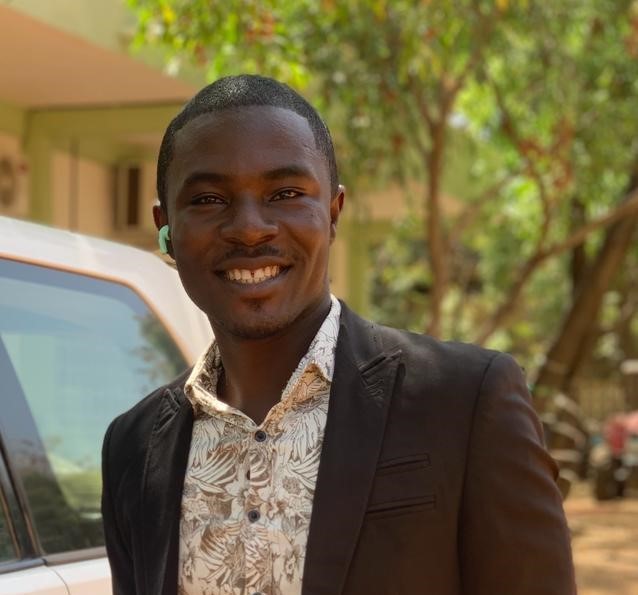From NELGA Scholarship to a GIZ Advisor – Anthony’s Success Story

Working with GIZ allows me to give back to the organisation by using the skills and techniques I learned through the GIZ-assisted scholarship programme – Anthony Sarfo
One of the best things that happened to me in 2018 after finishing my undergraduate studies in Human Settlement Planning was being a part of the German Academic Exchange Service (DAAD) In-country programme under the Strengthening Land Governance in Africa (SLGA) through the Network of Excellence in Land Governance in Africa (NELGA). The scholarship enabled me to research the contextualization of sustainable land use planning with incorporated geospatial technology tenets as input and precursor for land governance in small and intermediate urban areas.
This cumulated in a master’s degree and a position at The Deutsche Gesellschaft für Internationale Zusammenarbeit GmbH (GIZ).
The NELGA Programme is adaptable and provides opportunities for professional and academic growth. A series of training and networking events were held to improve co-learning and scholar capacity in research approaches and methodologies, data collection, and science communication. I also attended a summer school at the Goethe-Universitat Frankfurt am Main Training programme on the theme of Environmental and remote sensing data analyses via geospatial technologies in research and teaching. This enhanced my capacity in geospatial technologies, academic communication, support and guidance, and higher education didactics. I was able to enrol in two additional courses: digital image acquisition and processing at the geomatic department and spatial documentation of land rights at the land economy department at KNUST.
With the skills acquired, my initial publication during the scholarship programme was on corruption in the land governance in Ghana, titled “Towards Elimination of Corruption in the Land Sector: Incorporation of Geospatial Technologies in Land Governance at the Local Level” published in the African Journal on Land Policy and Geospatial Sciences. The paper advances a course for the incorporation of technology in land management as an indispensable endeavour to eliminate the bottlenecks and contribute to the fight against corruption in the land sector. Read More Here. Two other publications from my M.Phil. studies on the conceptualization of sustainable land use planning for land governance and the assessment of unsustainable spatial development of two intermediate towns through earth observation are in press. Further skills attained enabled me to undertake consultancy works on land use planning and adjunct lecturing roles at a prestigious university in Ghana.
I seek to contribute to methodologies for effective planning practices in Ghana in the purview of sustainability, earth observation, land governance, climate change, and gender. Presently, I am with the GIZ on the Resilient Against Climate Change (REACH) Project as a Technical Advisor (GIS and Remote Sensing). The project, being implemented in the Northern part of Ghana, works towards promoting inclusive and sustainable economic growth and increasing agricultural outcomes in rural communities of the Joint Programme Area (JPA). Additionally, envisage a point where planning at the community level is enhanced through participatory Community Action Plans (CAPS) and Community Land Use Plans (CLUP) in at least 200 communities in the JPA. I deem this an opportunity to use the skills and techniques acquired during my studies with GIZ assisted scholarship programme.
